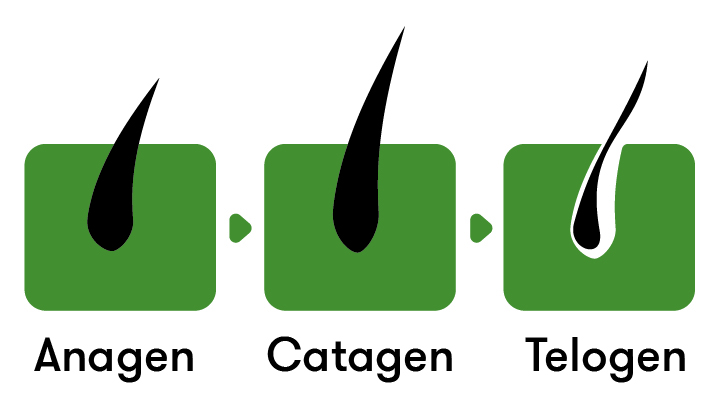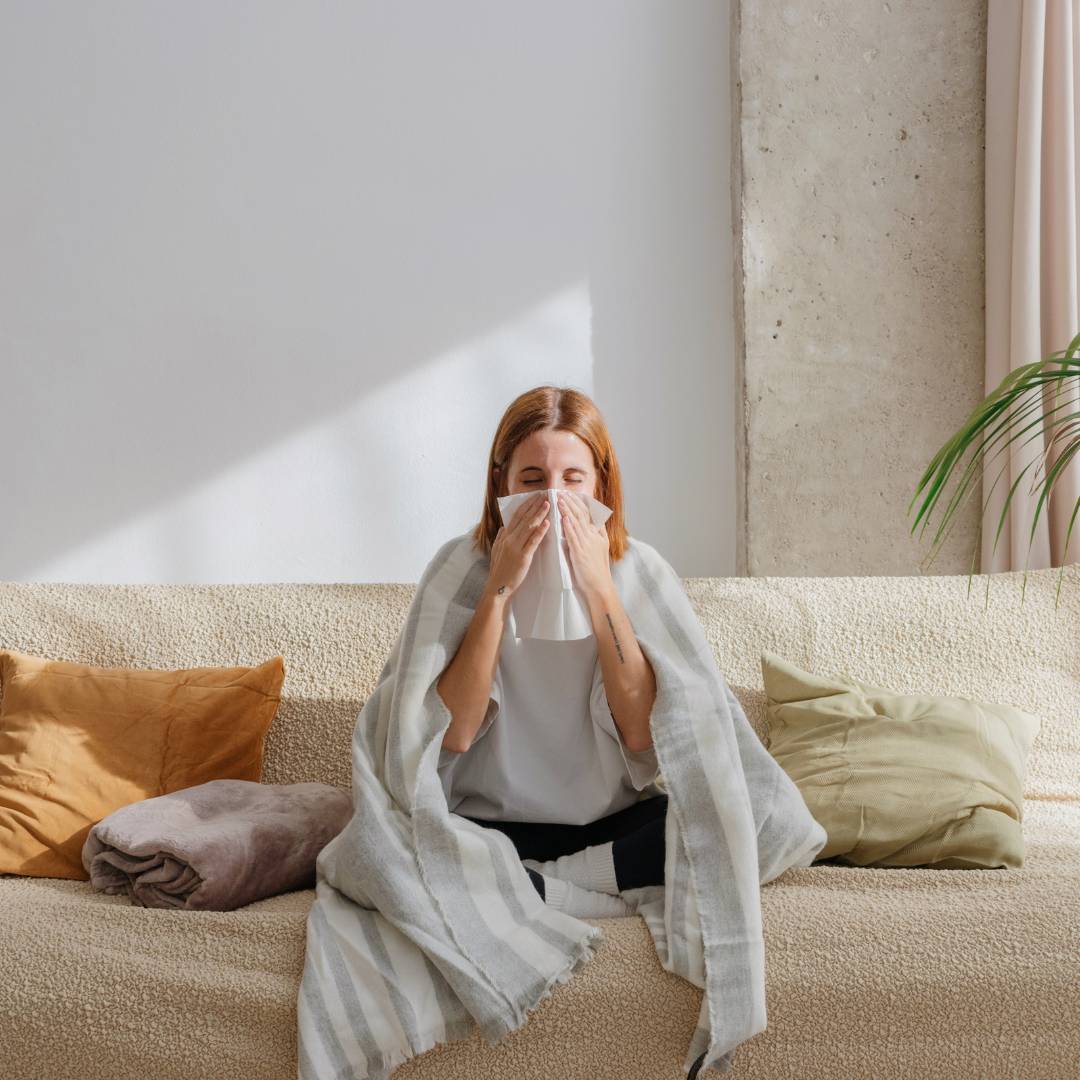In our daily lives we are exposed to different factors that can cause our hair to fall out to a greater or lesser extent. For many people this is a concern, as it may indicate an underlying health problem or simply because it affects their personal look.
Luckily, there are a few things we can do to prevent hair loss and improve hair health.
Main causes of hair loss
It is normal to lose an average of 50 to 100 hairs per day. There is a hair cycle that determines this hair loss, and it is part of our mammalian inheritance. As a result, we adapt our hair to weather changes that take place during the year.
There are five main causes of hair loss, either internal or external. It is important to identify the cause to be able to treat the problem from its root:
- Hereditary (or androgenic alopecia) is the most common cause of hair loss. Several genes are involved and many of them are related to the X chromosome, which corresponds to maternal heredity.
- Stress is the second most common cause of hair loss. When we undergo a period of pronounced stress, the scalp cells enter the so-called ‘telogen effluvium’, a disruption of the hair cycle that accelerates hair loss after 3 to 4 months.
- Hormonal changes are also a major cause, especially in menopausal or pregnant women, or those taking contraceptive pills. However, hormonal changes can also occur due to the photoperiod (hours of light and darkness during the day) and seasonal changes (in spring and autumn our hair falls out more than in winter and summer).
- Inadequate nutrition is a common cause of hair loss. A lack of vitamins and minerals in our diet weakens our hair and promotes hair loss, since they are essential components in our hair’s structure. A good diet guarantees nourished and strong hair, and therefore a healthier appearance.
- Last but not least, smoking makes our hair fragile, brittle and dull. The harmful components present in tobacco affect our health and this includes our hair. Internally, its toxicity can reduce the amount of nutrients reaching the scalp, causing our hair to fall out more frequently. On the other hand, due to our hair’s porosity, it absorbs harmful substances from the outside that accumulate inside it, causing our hair to fall out excessively and making it look less healthy.
What are the hair cycle phases
Each hair is born from a hair follicle, which has a hair bulb at its base. The dermal papilla cells are located in the bulb and are responsible for regulating the hair cycle phases. This is divided into 3 stages: the growth or anagen phase, the transition or catagen phase and the shedding or telogen phase.

Anagen phase (growth)
During this phase, which is the longest phase of the cycle, hair grows strong and healthy for a period that usually lasts between 2 and 6 years. This is a vitally important time because external factors such as stress, smoking, or a poor diet can stop or slow down hair growth. Although depending on each person, hair usually grows around 1 centimetre a month, so the longer this phase lasts, the more our hair will grow. The length of our hair is determined during this stage.
Catagen phase (transition)
This is the shortest phase, lasting 3 to 6 weeks. In this stage, hair growth moderates until it becomes stagnant, meaning that hair growth slows down and the hair follicle shrinks.
Telogen phase (hair loss)
At this point in the cycle, which lasts about 3 months, the hair falls out because new hair starts to grow from the root. This hair loss intensifies due to various reasons (stress, smoking, poor diet, or hormonal changes, as mentioned above).
When to worry about hair loss?
Hair follicles are living tissue that naturally go through a shedding phase as part of their life cycle. It usually lasts no longer than 3 months, but we must bear in mind that there are times of the year, such as autumn, when our hair may fall out more but this should not be a reason for alarm. We recommend that you see a dermatologist if you detect excessive hair loss and when accompanied by any of the following symptoms:
- Baldness in specific, circular areas of your scalp (alopecia areata).
- Itchiness and excessive flaking in areas where there is less hair density (tinea capitis).
- Redness and swelling in some areas of your scalp (seborrhoeic dermatitis).
- Hair loss also in other areas of your body such as eyebrows or eyelashes (madarosis).
- Gradual loss on the top of your head (diffuse alopecia).
- Thinning and sudden thinning of your hair.
Tips to prevent and reduce hair loss
Besides consulting a specialist, you can follow a few tips to prevent and/or reduce hair loss:
1. Follow a balanced diet
It is important to follow a diet rich in vitamins and minerals, as they are essential for good hair health. Zinc is necessary to produce keratin, a protein forming part of the hair structure and strengthens hair follicles (it is present in pulses and nuts). B vitamins, especially biotin (vitamin B7), are essential for scalp growth (found in meat, fish, dairy products, and pulses). Group D vitamins also allow the absorption of calcium and other minerals necessary for hair growth (found in dairy products, eggs, and oily fish).
2. Take care of your scalp
Use chemical-free products, such as sulphates, to avoid damaging your hair. Avoid excessive heat from straighteners or blow-dryers and preferably apply heat protectants. Also, don’t comb your hair with stiff bristle brushes or use too much force when brushing your hair, as this can damage or break your hair.
3. Massage your hair in a circular motion when washing
Use your fingertips to stimulate blood circulation to your scalp. This also helps the nutrients that reach the roots to be distributed throughout the hair follicles, and any hair treatments we may use are absorbed more quickly and effectively, thereby improving your hair’s appearance.
4. Use food supplements
Natural ingredients in supplements provide beneficial properties to your body that help reduce inflammation and improve circulation within the scalp. By taking them, you can help reduce hair loss by providing essential nutrients and vitamins to keep your hair strong and healthy.
Food supplements for preventing hair loss
Thanks to the plant extracts and nutrients present in our supplements, you can reduce hair loss and promote hair growth and nourishment to keep your hair healthy and strong.
In the following table we recommend some of the most useful food supplements for maintaining healthy and strong hair:
| Supplement | Prevents hair loss | Promotes hair growth | Nourishes and strengthens hair |
| Hair forte | X | X | X |
| Biotin Complex | X | X | |
| Hair, Nails & Skin Complex |
X |
X |
|
| Zinc | X | X | |
| Vitamin B Complex / Vitamin B Complex MAX |
|
X |
X |
| Vitamin D | X | X |
In addition to these supplements, we recommend the Keraphyte line, which consists of two products: Hair Growth and Loss Prevention Lotion, which contains a revolutionary formula called Anagendil and Keraphyte Hair Growth Treatment, which has been proven to reduce hair loss in the telogen stage of the hair cycle.
As we have seen, hair loss can be a common concern for both men and women, but there are a few ways to prevent and slow down hair loss. As well as improving hair health, supplements can be an extra help when it comes to improving your anti-hair loss habits, nourishing and strengthening your hair.






